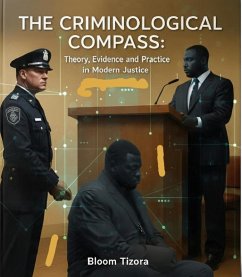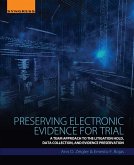This book, The Criminological Compass: Theory, Evidence, and Practice in Modern Justice, is designed to bridge the chasm that often exists between rigorous academic inquiry and the demanding realities of operational law enforcement and policy. It has been crafted for a diverse and critical audience: the undergraduate and college student seeking a nuanced understanding of crime's root causes, and the working police officer, prosecutor, and correctional professional who needs theory as a direct, actionable tool.
We begin by challenging the simplistic legal definition of crime, compelling the reader to recognize the pervasive issues of Social Harm, organizational negligence, and the political nature of law creation. The intellectual journey proceeds from individual-level choice and trait factors that compel criminal acts to the profound influence of the neighborhood-exploring how structures like strain, social disorganization, and weakened collective efficacy concentrate crime in specific places.
Crucially, this text commits deeply to Evidence-Based Criminology (EBC). We dissect the scientific methods used for policy evaluation, guiding readers to become smart consumers of data rather than passive recipients of political rhetoric. This research-driven approach informs our analysis of contemporary policing practices, emphasizing the effectiveness of strategies like Problem-Oriented Policing and the foundational importance of Procedural Justice in establishing community legitimacy.
Perhaps most importantly, this book is an ethical compass. We dedicate substantial focus to the "forgotten equation"-the victim's experience of trauma and the transformative potential of restorative justice models. We directly confront the uncomfortable truths of systemic bias, the ethical challenges of discretion, and the potential for algorithmic bias introduced by the use of Artificial Intelligence in sentencing and risk assessment, a theme that bookends our correctional analysis and future projections. The complex, borderless threat of Digital Criminology is integrated throughout, acknowledging that crime now operates at the speed of light.
Whether you are reading this in a lecture hall, preparing for an exam, or carrying it in your patrol car, your role is pivotal. Criminology is not a passive subject; it is a call to action. We offer you the knowledge to critique the flaws in the system, understand the scientific basis of effective intervention, and navigate the difficult ethical terrain that defines the profession. By mastering the material presented, you gain the authority to demand accountability, advocate for evidence-based solutions, and ultimately, help build a more just and equitable future.
Dieser Download kann aus rechtlichen Gründen nur mit Rechnungsadresse in A, B, CY, CZ, D, DK, EW, E, FIN, F, GR, H, IRL, I, LT, L, LR, M, NL, PL, P, R, S, SLO, SK ausgeliefert werden.









